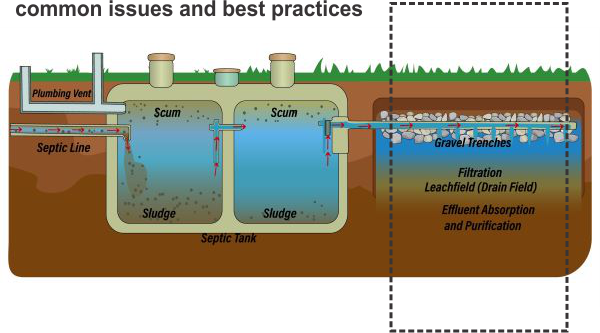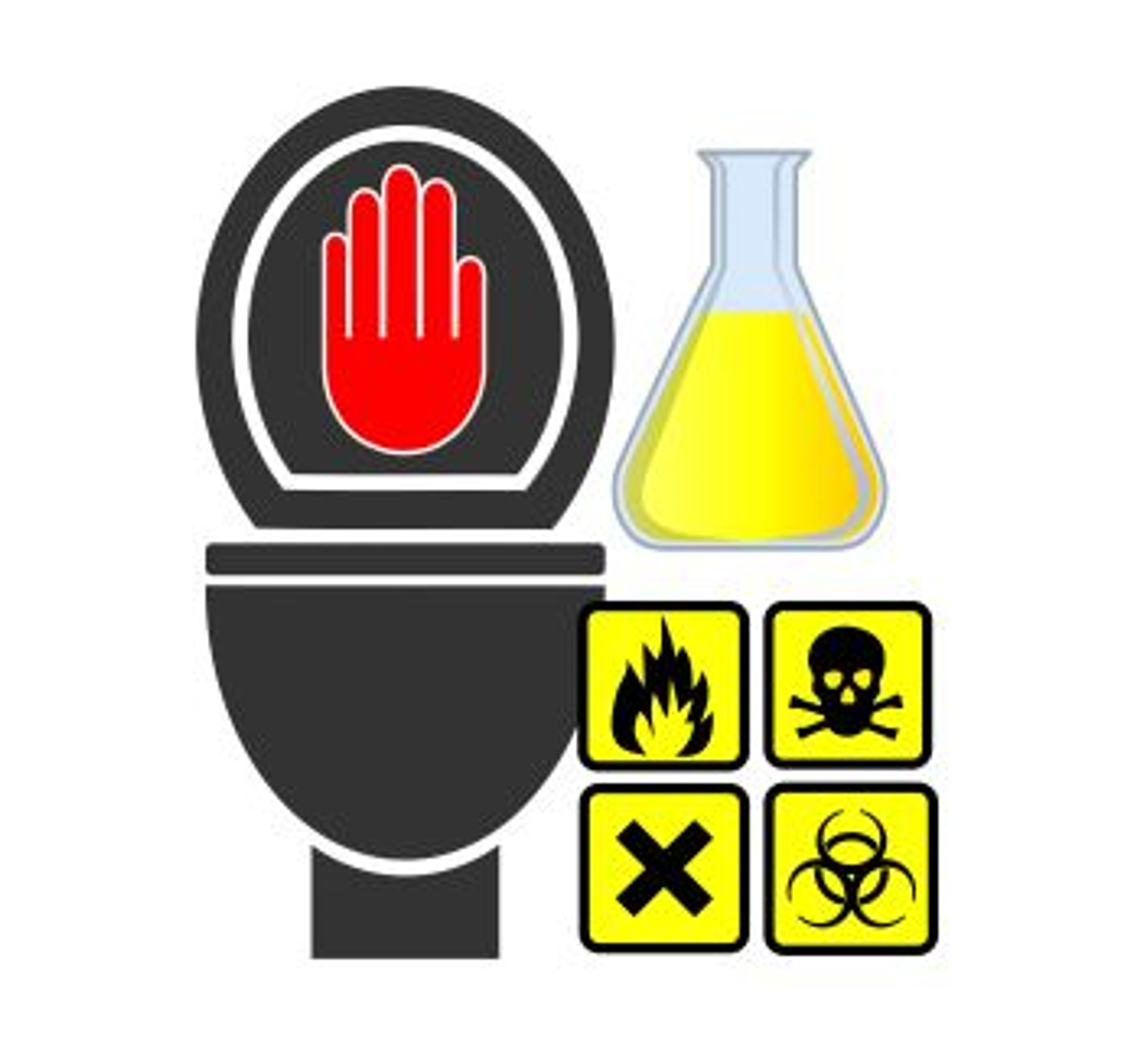SEPTIC SYSTEM
It's out there buried in your yard, constantly on the clock, with no vacation, lunch, or dinner breaks. What are we talking about? Your Septic System. The most undervalued utility in your home; however, with proper care and service, your septic system can last a lifetime.

If you were to look inside your septic tank, you would find three layers. The top layer is the "scum zone," where organic material floats to the surface. Bacteria in the septic tank biologically convert this material to a liquid. The middle area is the "settling zone," where primarily clear water will be found. This clear water is the only layer that should enter the absorption area. Finally, the bottom area is the "sludge zone." This zone is where the inorganic or inert solid materials sink to.
You're Septic System will provide many "warning signs" that need attention. Take them seriously; ignoring them could prove costly.
• Slow drainage when flushing toilets
• Water backing up into toilets, sinks, tubs, showers, and washing machines
• Gurgling sounds when running water or flushing toilets
• Depressions forming in the soil
• The lawn becomes a deeper green than the surrounding areas of your lawn
• Foul odors in or around your house
Northern Nevada is home to numerous Septic System types. These can include; Conventional, Mound, At-Grade, and In-Ground pressure systems. We service every kind of system, and every service begins with a thorough system inspection:
• System location
• Uncovering access holes
• Flushing the toilets
• Check for signs of backup
• Baffle, Pump, and Float System Inspection
• Measurement of scum & sludge zones
• Septic Tank pumping
• An initial application on bacterial enzymatic maintenance. Please see our products page for more information.
LEACH FIELD

Issues with the Leach field cause most septic system failures. The system relies on the leach field to filter and disperse waste. When wastewater or solid waste builds up on the soil at the bottom of the leach field, the ground plugs up and prevents proper drainage. Common causes of leach field malfunction include:
• Pouring chemicals, grease, paint, and other complex substances down drains
• Excessive water use in the house and leaking toilets and drains
• Parking vehicles on top of the field
• Water runoff from extreme rainfall or snow
• Tree and plant roots that interfere with pipes
• Old age
Additionally, one of the leading causes of leach field malfunction or failure is not having your septic tank pumped regularly to remove sludge. On average, your septic tank should be pumped every 2-3 years, but the exact timing depends on the size of the tank and your household size.
Leach field malfunction is a serious problem that needs professional attention promptly. If not correctly fixed, the leachfield could risk your and your family's health. The following are a few common signs of leach field failure:
• Grass over the leach field is greener than the rest of the yard
• The surrounding area is wet, mushy, or even has standing water
• Sewage odors around drains, tanks, or leach field
• Slow-running drains or backed-up plumbing
On average, Leach fields can last between 15 and 25 years if properly cared for. Proper leach field maintenance starts with monitoring water usage and what goes into your septic system.
If you are experiencing any of the signs listed above, or notice other issues with your leach field and septic system, call 775.427.9603 or use our RingBack tool. Our experienced technicians can address the problem and work to resolve the issue in a timely and cost-effective manner.
RINGBACK REQUEST

